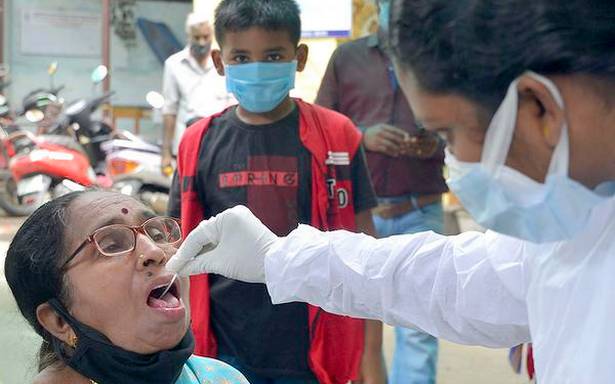They warn of new waves unless we act quickly and efficiently
With a new coronavirus variant detected in South Africa, scientists and health experts in India have said that new waves of infection are anticipated and unless we act quickly and efficiently, the country will possibly see repeat waves.
India has better tools in hand now compared to two years ago, said Vinod Scaria, scientist at CSIR-Institute of Genomics and Integrative Biology (IGIB). He added the country, however, had to improve its vaccination drive, public health measures, health infrastructure and genomic surveillance to be better prepared.
Time was valuable and we cannot afford to lose it, he explained, adding that India had the best tools at hand, vaccines and public health measures including masks, distancing and ventilation. Unfortunately, there was a global inequity of vaccines.
“We have to use our precious time to vaccinate all eligible people with two doses at least. Closing the gap in the unvaccinated and second dose in the 45+ age group could provide a unique opportunity to minimise COVID-19 deaths,” he said.
Dr. Scaria added that boosters would not help when a larger proportion of the world has not got even one dose.
According to experts, the new variant from South Africa is important because it has a large number of mutations, including around 32 in spike protein, some of which are independently associated with immune escape as well as increased transmissibility.
While the additive behaviours of such mutations cannot be accurately predicted, this can give rise to directions to focussed investigation, they explained.
Stating that the latest development is particularly concerning for a country such as India, which is densely populated, he said transmission among the susceptible population can occur at a greater pace.
Viswesvaran Balasubramanian, consultant, interventional pulmonology and sleep medicine, Yashoda Hospitals, Hyderabad, said though public health systems were geared to face the possibility of a third wave, viral variants with high transmissibility could put a huge stress on the existing healthcare infrastructure, given the population in India.
“In addition, with children still unvaccinated and many adults yet to receive the second dose of vaccine, a mutant variant at this time can result in rapid transmission and increased severity of disease in these susceptible populations,” he said.
Doctors also explain that with mutations becoming inevitable, long-term preparations and strategic planning to live with the COVID-19 pandemic are essential.
“At an individual level, compliance to pandemic norms like avoidance or limiting social gatherings, wearing masks in public spaces, and even indoors in homes with susceptible populations and adherence to hand sanitisation techniques should be followed,” said Dr. Balasubramanian.
India has been successful in administering more than 100 crore vaccinated doses, which is a great achievement in terms of the huge population but mostly these are single dose and not the complete two doses of vaccination, which can be effective in fighting the new strain, if it gets in India, said Ankita Baidya of infectious diseases department, HCMCT Manipal Hospitals.
Dr. Baidya added that viruses tend to mutate and the only way out was to strengthen and be prepared with the healthcare infrastructure to tackle and treat.
“We must strictly follow the infection control guidelines and COVID-19 appropriate behaviour as part of our lifestyle,” he noted.
Source: Read Full Article

